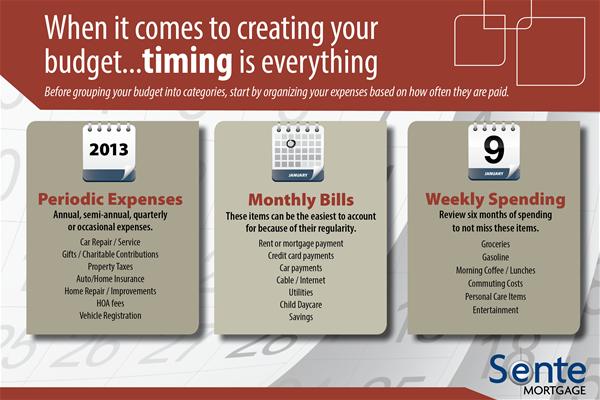Timing is Everything

At Sente, we do a yearly business-planning exercise that includes a comprehensive budget. This year we discovered that we are all really good at budgeting and tracking our monthly expenses. These are easy to account for because they’re so regular. But what we also learned is that it’s hard for us to stay on top of expenses that aren’t once-a-month — such as periodic payments, like property taxes, or daily trips to Starbucks. It’s losing track of these expenses that derails budgets.
- Some expenses are periodic, happening at infrequent intervals that can be a challenge to track. Examples are vehicle repairs and home improvements. Others are biannual, like some car and homeowner insurance policies. Because they appear so infrequently, they can be overlooked.
- Then there are the weekly and daily expenses — such as groceries, gas, etc. These are so frequent – and often paid with cash – that it’s easy to miss the total expenditure if you don’t track them carefully.
By reviewing more and less frequent expenditures, you can plan for these expenses in your budget, along with your monthly bills. For periodic expenses, divide the total by the number of months the bill covers (12 for annual, 3 for quarterly, etc., and include that as a monthly expense in your budget.) For more frequent expenses, total your spending over a six-month period and divide by six to get a monthly average. With a more complete budget, one that takes these irregular expenses into account, you will be more in control of your financial future.

